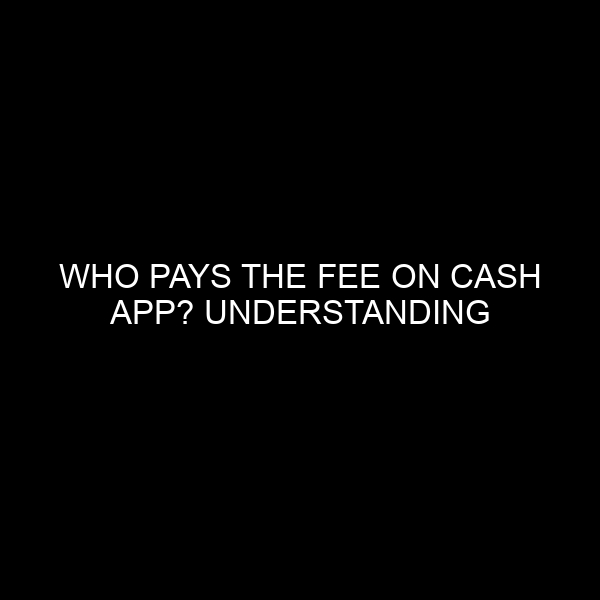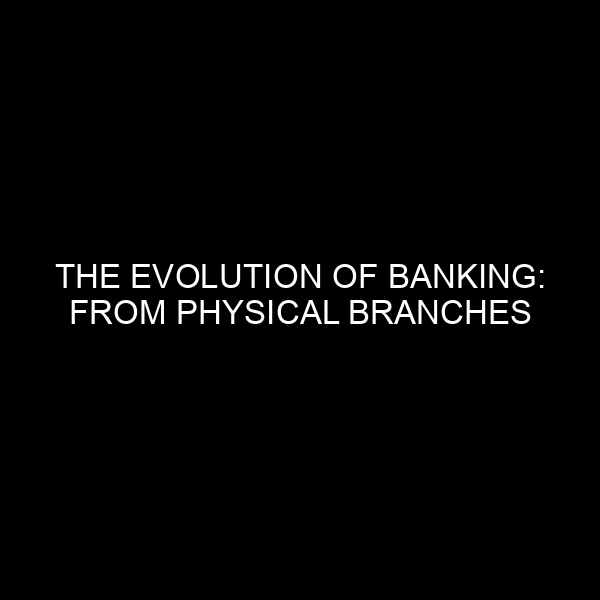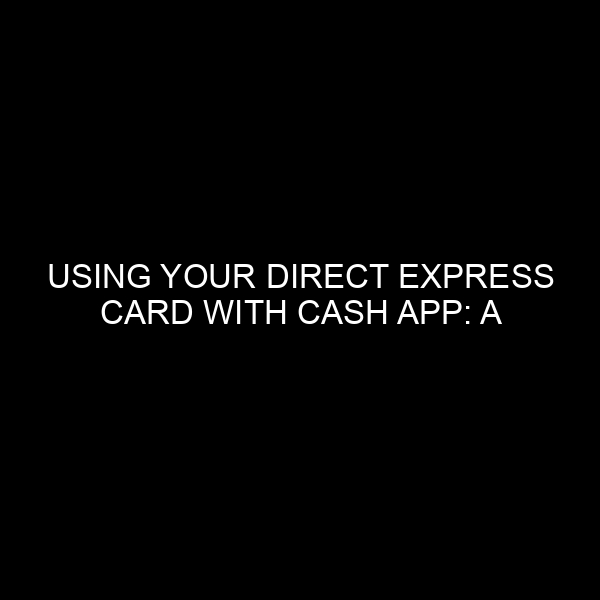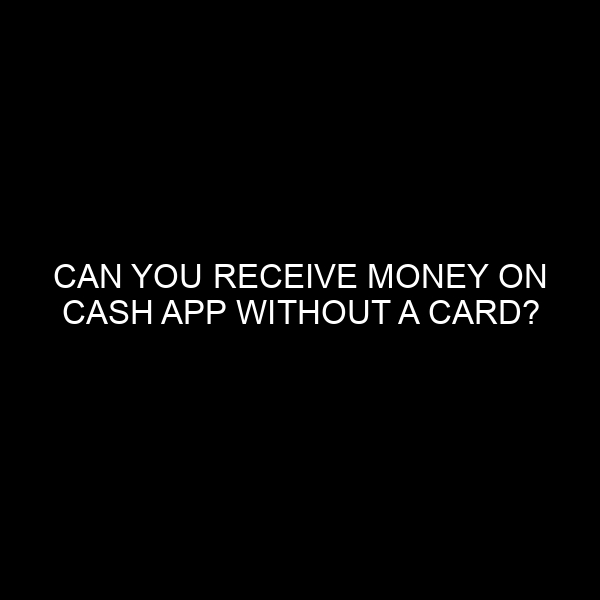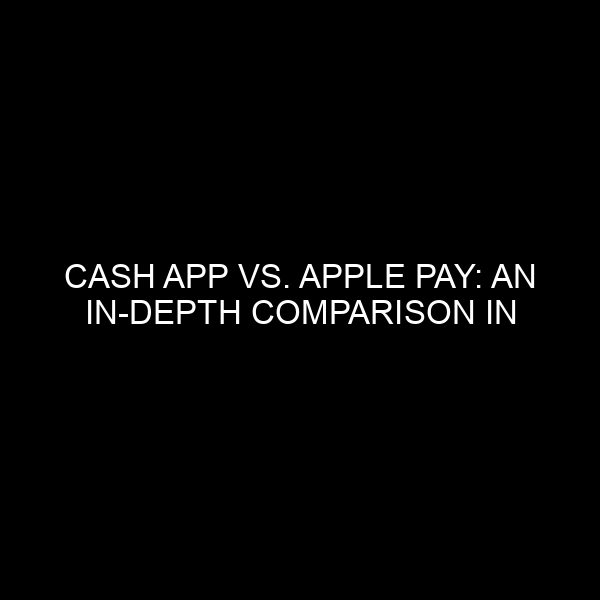Who Pays the Fee on Cash App? Understanding Transaction Costs
Cash App, a brainchild of Square Inc., is one of the leading peer-to-peer money transfer apps, widely utilized for its simplicity, speed, and convenience. But as with most financial services, certain transactions come with associated costs. One of the common questions people often ask is: Who pays the fee on Cash App? By the end of this article, you’ll have a thorough understanding of Cash App’s fee structure, helping you navigate the platform with more clarity.
Introduction: The Rise of Cash App in the Digital Payment Ecosystem
In our increasingly digital world, mobile payment apps like Cash App have revolutionized the way we handle money. Established in 2013, Cash App has made a name for itself in the financial market, particularly among the younger generation who favor instant and hassle-free transactions. Its user-friendly interface and diverse features, from personal to business transactions to investing in stocks and Bitcoin, have indeed made it a preferred choice for many.
Cash App Fees: A Comprehensive Breakdown
To fully understand who bears the cost when using Cash App, we need to delve into the specifics. Let’s dissect the various transaction types and their associated fees:
1. Personal Transactions
If you’re sending or receiving money from friends or family and aren’t in any rush for the transaction to be processed, then you’re in luck. Cash App doesn’t charge any fee for personal transactions when you use a linked bank account or the app’s balance. However, if you choose to use a credit card, there’s a 3% fee applied to the sender.
2. Business Transactions
For individuals or entities receiving money for business purposes or goods and services, Cash App levies a 2.75% fee on the transaction amount. This fee is borne by the recipient. Therefore, if you’re a business owner, it’s imperative to factor this cost into your pricing structure or consider it as an operational cost.
3. Instant Transfers
Cash App provides two withdrawal speeds – standard and instant. While standard bank transfers, which take 1-3 business days, are free, opting for an instant transfer to your bank account comes with a 1.5% fee. The person initiating the transfer shoulders this fee.
4. Bitcoin Purchases
Cash App has also integrated a feature to buy and sell Bitcoin. When buying or selling Bitcoin on the platform, Cash App charges a service fee on each transaction, in addition to a potential additional fee determined by price volatility across U.S. exchanges. It’s crucial for users to review the fee structure in the app before making Bitcoin transactions.
Why Does Cash App Charge These Fees?
In the vast expanse of the financial market and banking industry, revenue generation is multifaceted. For platforms like Cash App, these fees are a primary revenue source. They help cover the operational costs, from ensuring high-end encryption for secure transactions to customer service maintenance and even facilitating the very feature of instant money transfers.
Tips to Minimize Fees on Cash App
While some fees are unavoidable, being strategic can reduce your expenses:
- Link a Bank Account or Debit Card: For personal transactions, avoid using a credit card. Instead, link a bank account or debit card to avoid the 3% fee.
- Plan Ahead: If you’re not in urgent need of cash, opt for the standard transfer instead of the instant one. This little patience can save you 1.5% of your transfer amount.
- Stay Updated: Periodically check the Cash App fee structure, especially if you’re trading in Bitcoin. Being informed will help you make cost-effective decisions.
Conclusion
Cash App, with its diverse array of financial services, is an invaluable tool in our digital age. While it offers many free services, it’s paramount for users to understand where fees might apply and who bears the cost. By staying informed and using the platform judiciously, you can make the most of Cash App without breaking the bank. Remember, in the financial world, knowledge is not just power—it’s savings.
